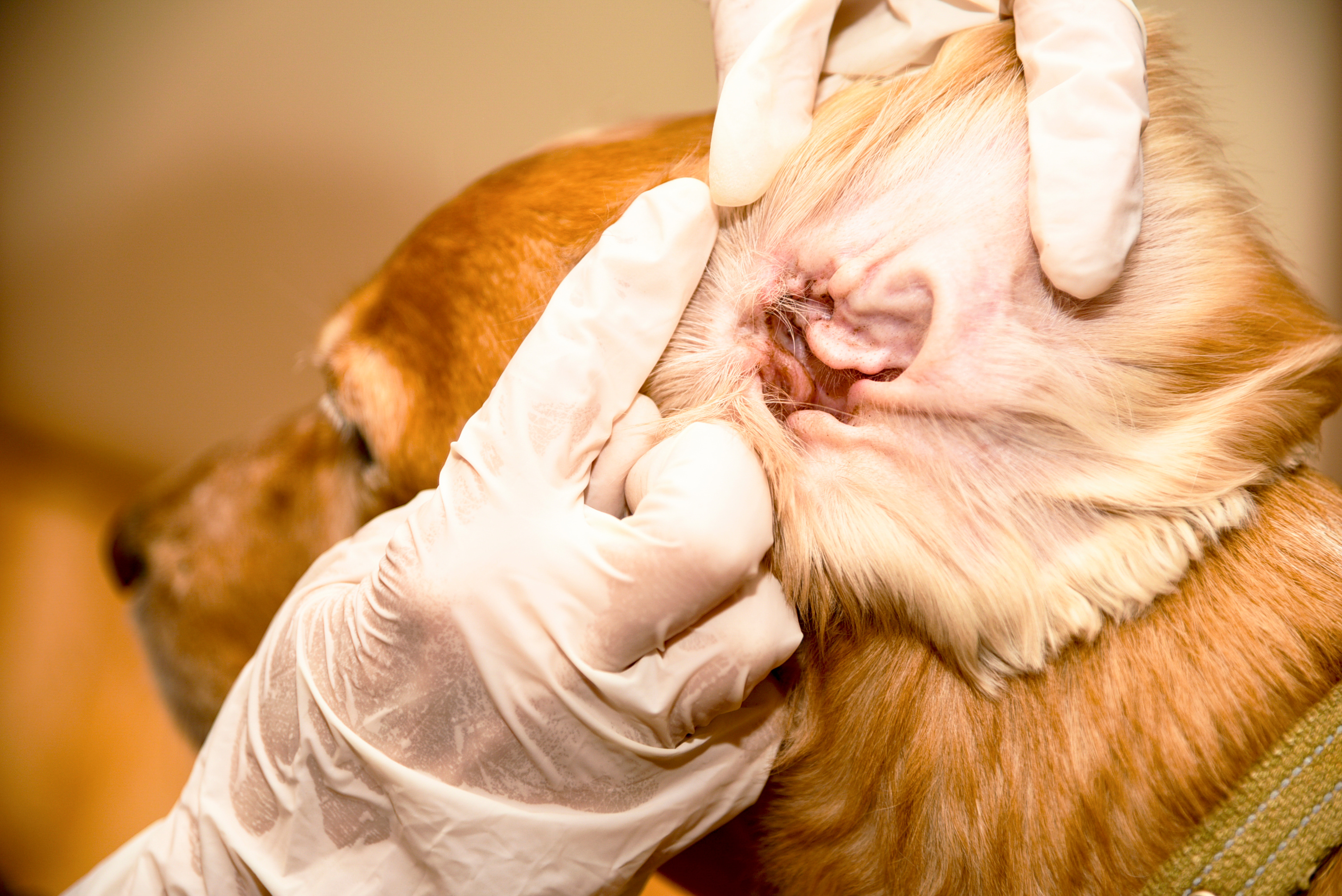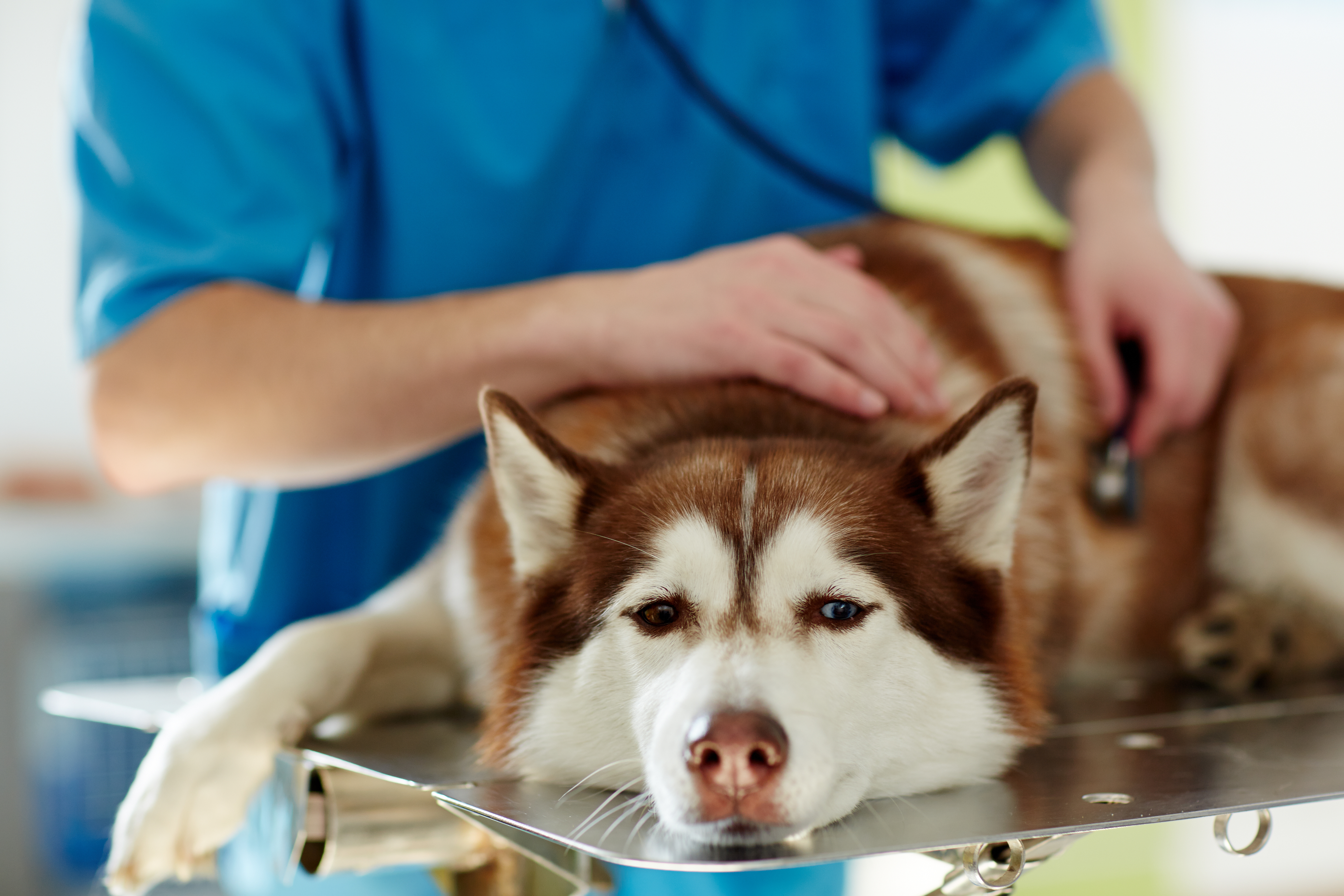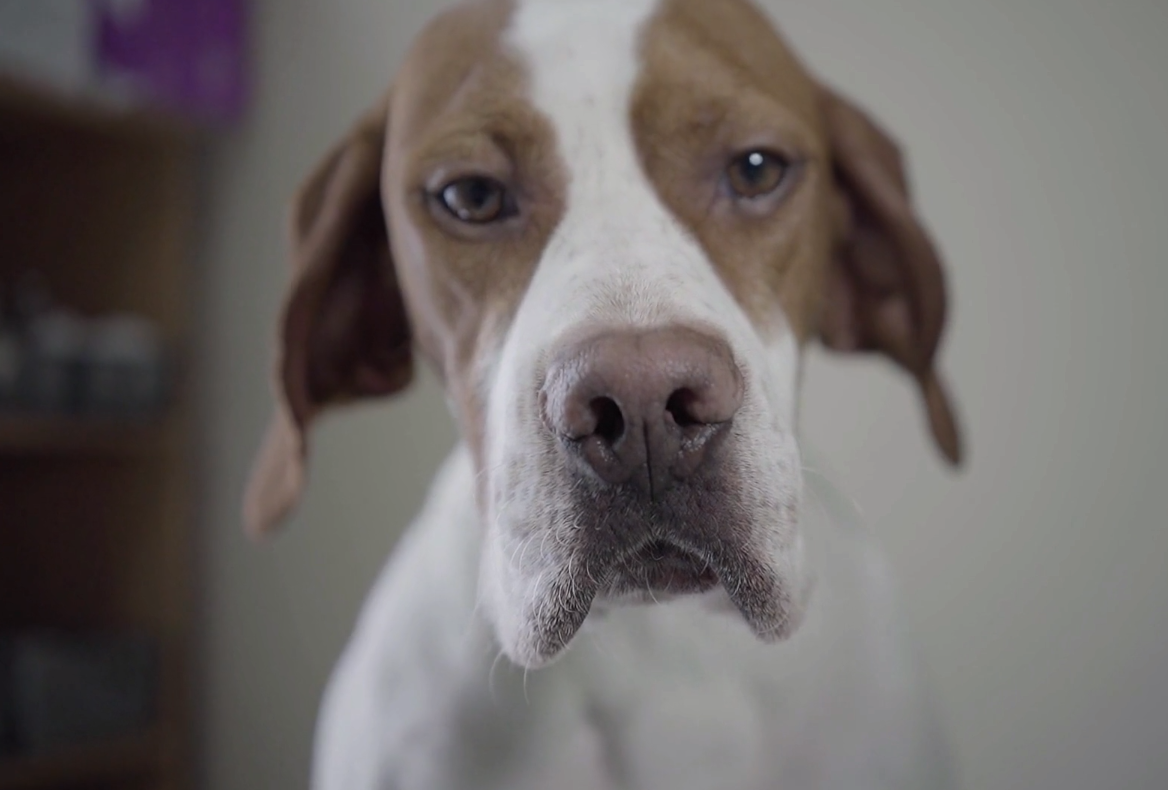Cranial cruciate ligament rupture, similar to ACL tears in humans, is a common orthopedic injury in pet dogs. A tibial plateau leveling osteotomy (TPLO) is a common procedure performed to address stifle (knee) instability secondary to cranial cruciate ligament rupture.
During surgery for a TPLO, the medial crural fascia, a fibrous sheet on the inside of the knee made up of tendons to three important muscles in the dog’s leg, is cut to allow access to the bone. The medial crural fascia is important for bending the stifle, giving the stifle stability, and for proprioception. As opposed to the rapid gain in wound strength displayed in skin, it takes a long time for fascia to heal. In the first week of healing, fascia incisions have no inherent strength; therefore, the repair is entirely dependent on the suture material, additionally, tendons only reach 50-80% of their original strength at one year following reconstruction.
In humans, deficiency in the repair of the medial crural fascia has been associated with decreased rotational stability, increased meniscal injury, and continued knee subluxation following surgery for cranial cruciate ligament rupture. This leads to the question for dogs, is there a way we can preserve this medial fascia and improve outcomes following TPLO surgery? In this segment Dr. Sawyere Hansford - a board-certified veterinary surgeon - discusses:
- Cranial cruciate ligament rupture - what it is, risk factors, and how it occurs
- Medial crural fascia - what it is and why it's important
- Tibial Plateau Leveling Osteotomy - the procedure and how it's performed
- How might we preserve the medial crural fascia during surgery
- Typical management of patients postoperatively
Running time: 30 mins
Approved for 0.5 hrs of CE credit by AAVSB RACE and NY State
You might also like
Challenging Conversations And Defusing Intense Emotional Interactions
09/10/2025
This essential webinar equips veterinary professionals with communication strategies to navigate cha...
Read
More
Tackling Itchy And Smelly Ears
07/29/2025
Otitis externa is a common and often recurrent condition affecting the ears of dogs and cats. The co...
Read
More
Quality Of Life And End Of Life Considerations For Cancer Patients And Their Families
12/11/2024
Dr. Kathleen Cooney - a certified veterinary hospice and palliative care veterinarian, end-of-life e...
Read
More
Supporting The Cancer Patient: Managing Cancer Pain, Nutritional Needs Of Patients, And Supporting The Caregiver Through It All
12/04/2024
Aside from the plan prescribed to treat a pet’s cancer, we have to ensure that we are addressi...
Read
More
The Current Thinking About What Cancer Is And Its Possible Causes
10/23/2024
Cancer is a term that is often shrouded in uncertainty and fear, but gaining a clear understanding o...
Read
More
Splenic Masses In Dogs - Differentiating Malignant From Benign Masses
07/07/2021
A dog presenting for acute illness associated with a splenic mass is commonplace in small animal pra...
Read
More










